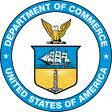United States Department of Commerce

United States Department of Commerce: Staff Publications
Date of this Version
1997
Abstract
Information on reactions of delphinids to biopsy sampling and healing of associated biopsy wounds is limited. Results presented here report on the behavioral responses of free-ranging bottlenose dolphins (Tursiops truncatus) to remote biopsy sampling procedures, and provide information on stages of surgical biopsy wound repair. Biopsy samples of free-ranging dolphins were collected between February–May 1992 in Galveston Bay, Texas, using a sterilized corer-tipped bolt, launched from a crossbow. A total of 8 direct ‘hits’ were documented, 4 hits (50%) in which a tissue sample was obtained, 2 hits (25%) from which no sample was retrieved, and 2 hits (25%) in which the bolt struck the water (within approximately 30–60 cm) prior to striking the animal (no samples). Behavioral reactions were similar for all eight dolphins directly struck by a bolt, and were best characterized as startle responses. As part of a NMFS sponsored capture effort to assess a 1992 bottlenose dolphin die-off in Matagorda Bay, Texas, surgical biopsy samples were taken from 35 dolphins (Sweeney, 1992). Biopsies roughly 3–5 cm in diameter and 1 cm deep, were surgically removed. While surgical biopsy wounds were not identical to remote biopsy wounds, they were comparable. Sixteen of the 35 surgically biopsied individuals were photographically resighted between July 1992 and December 1993. Photographs of biopsies immediately after completion of surgical procedures and up to 476 days post-biopsy were classified into four stages of healing. Epidermis appeared to have covered wounds by 40–42 days post-biopsy, but in some cases possibly as early as 15–26 days. Repigmentation of epidermal tissue varied between individual dolphins, but in no cases occurred prior to 61 days post-biopsy. No indication of infection or related pathologies were detected from any of the biopsy wounds monitored during this study. Findings reported here suggest that when adequate care and caution are used, biopsy sampling of bottlenose dolphins is not likely to produce long-term behavioral alterations or result in physiological complications during wound healing.


Comments
Published in Aquatic Mammals 1997, 23.1, 49–58.